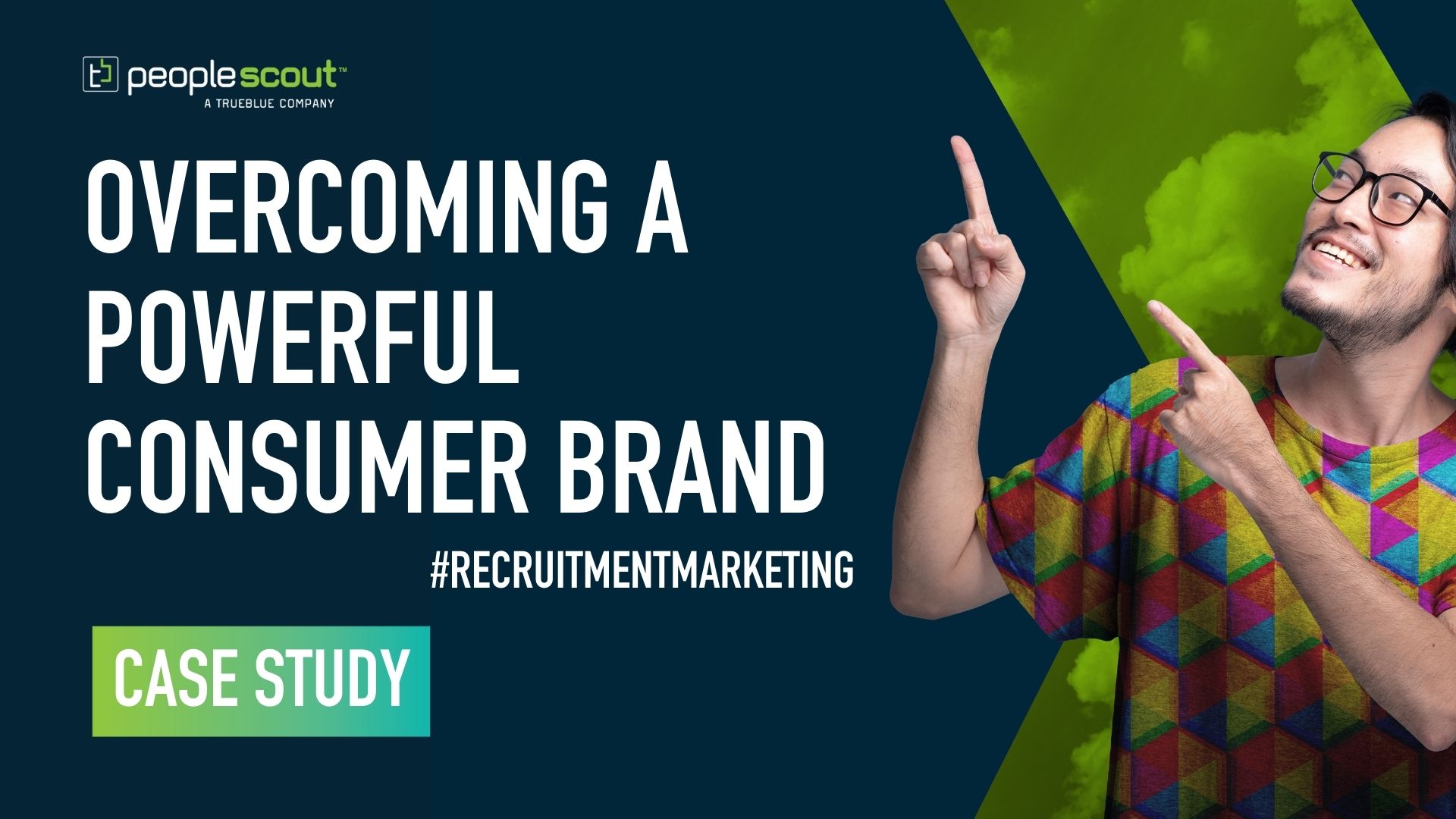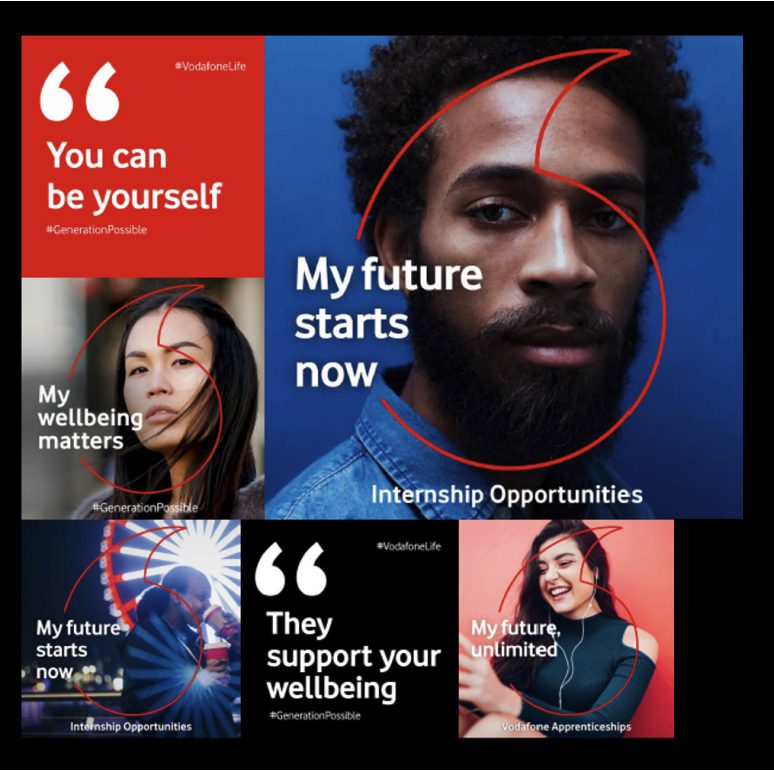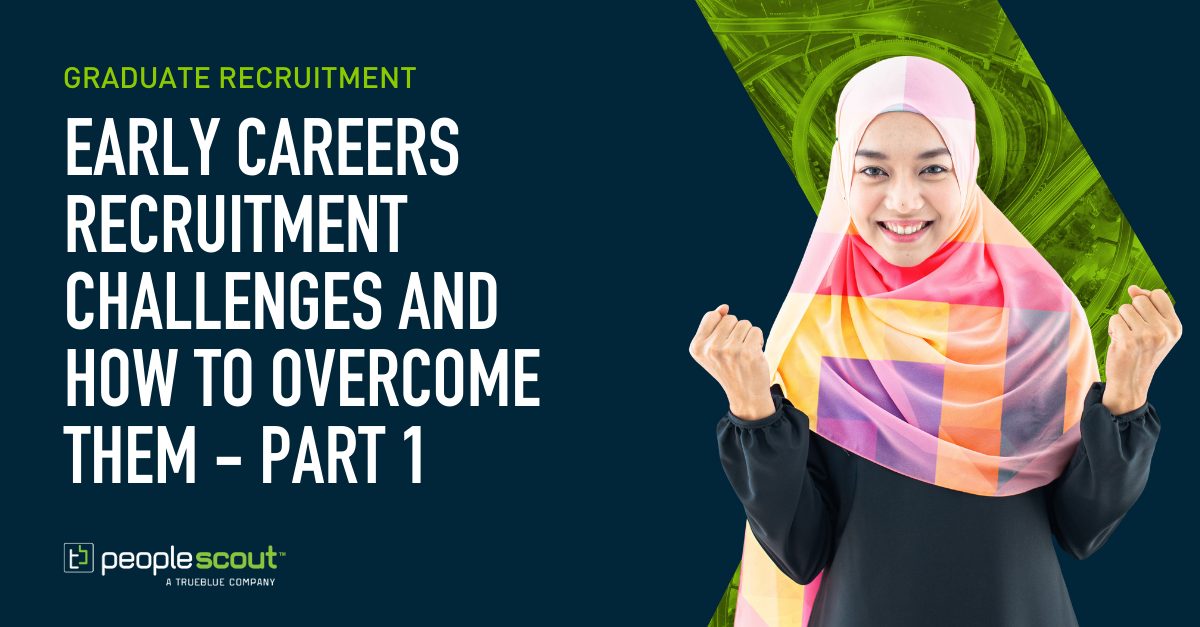Blog series – Part 1
The future challenges organisations face in early careers can be summarised succinctly:
How to hire well and hire diversely during a deluge of applications.
Here are the top 3 ways this has an impact on recruitment:
- Maintaining excellent candidate experience despite an unprecedented level of applications
- Retaining diverse candidates through the recruitment process
- Hybrid virtual and in person assessment being here to stay
First up and the most significant pressing challenge is that early careers recruiting teams are being deluged with applications. This creates a great opportunity to find exceptional talent but, it also brings challenges.
The quantity of applications has never been higher, and here at PeopleScout we have recorded increases of 300% for some roles.
This phenomenon has come about because of two competing forces creating pressure for recruiting teams: fewer roles and surge in available candidates.
On the one hand there are up to 40% [1] fewer early careers roles available for young people to apply for. The Institute of Student Employers (ISE) has suggested a more conservative reduction of 23% [2] because of covid-19’s effect on the economy. On the other hand, there are same number (circa 800,000 [3]) graduates graduating and school leavers looking for roles. In Autumn 2021 there will be more graduates as those who took a gap year post study (estimated to be c 15%) and continued their education look for work.
Some analysts expected in a higher number of deferrals of university places which would ease the bottleneck however this did not turn out to be the case. UCAS reported only a 2pc increase in deferrals for the 2020/21 university intake [4].
The net effect is candidates are applying for upwards of 20 roles reach – pre credit crunch numbers – as they cast their net wide.
For employers, the is pressure is felt in under resourced recruitment teams – where 51% of HR staff furloughed across all three lockdowns have been in the resourcing function – who must process these candidates quickly and fairly and maintain a high level of candidate experience.
Are you finding it hard to keep up with business demands on recruiting?
We understand that more than ever, pressure on teams to manage application volumes. If your organisation needs talent beyond your in-house resources, consider an ‘on demand’ resourcing solution. We are extending many clients resourcing teams they they need it, for as long as they need it. This gives them superior scalability and additional expertly trained recruiting staff.
It also delivers consistent candidate & hiring manager experience.
Your candidate experience must remain excellent no matter how many applicants are in your pool or how many you need to reject to prevent damage to your reputation in future years of recruiting.
Consumer facing brands experience the cost of poor candidate experience more keenly than others. We solve this for candidates by pushing forward towards even more authentic content from staff and about our clients.
We use feedback tools to give feedback back to applicants and gather vital intel throughout the journey. Our 2020 research on candidate experience revealed that ¾ of candidates surveyed have never been asked to give feedback – so all that valuable intelligence is not typically being garnered unless we put it in place for customers.
Conversely, we found that 9 out 10 candidates would be willing to give the feedback if asked. And interestingly, when we investigated the stats, when they are asked for feedback it increases their perception of the organisation. They see you as a learning organisation. Simply the mechanism of asking for feedback enhances your brand reputation.
To manage application numbers, a reliable tool are self-selection filters that enable candidates to deselect themselves earlier in the process – or understand why they are not selected.
These differentiate one application from another as well as being practical.
We all know that the recruitment process is two way – they are deciding about you and you about them however it is not always experienced like that in the early stages. By opening the process and empowering candidates with information and insight (that does not affect the integrity of your assessment) we find the candidates that companies truly seek stay in the process.
For example, with British Airways, we introduced a match me tool to ensure that only those candidates who truly understood the reality of travelling consistently and being on standby continued to apply. As a result, post start dropouts decreased, and candidate satisfaction increased. Happy all round: client and candidates.
Coming back to brand, you must be attentive to your specific employer brand and values during the recruitment process of course.
Your brand and values need to flow through your communication with candidates and the experience they have.
Technology is also a means for managing and streamlining processes when you have significant rapid increases in applications. But which tools are right for you and how do you justify the investment when the economy is so volatile?
Our technology is available to you (and award winning, of course) however we are tech agnostic at our core and consult with plethora of technology available to put together the best fit tech stack for you. Tech Stack evaluation is a light piece of consultancy that can improve efficiency by 20%.
In summary:
1 – Gather feedback at every stage,
2 – Use self-selection filters
3 – Brand and values must flow through communication and the candidate experience
4 – Tech stack review and update







